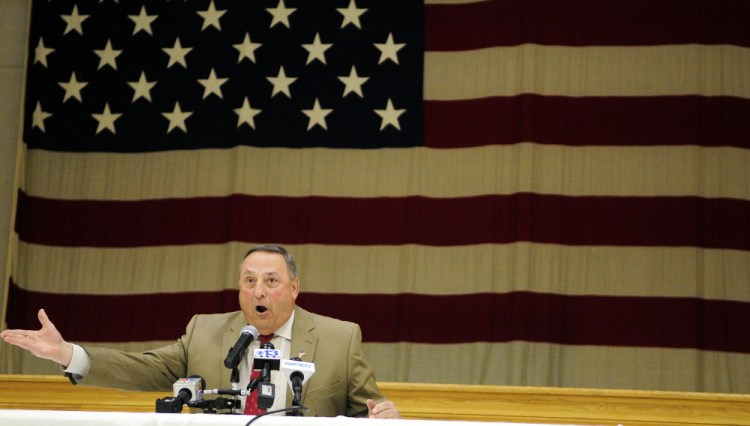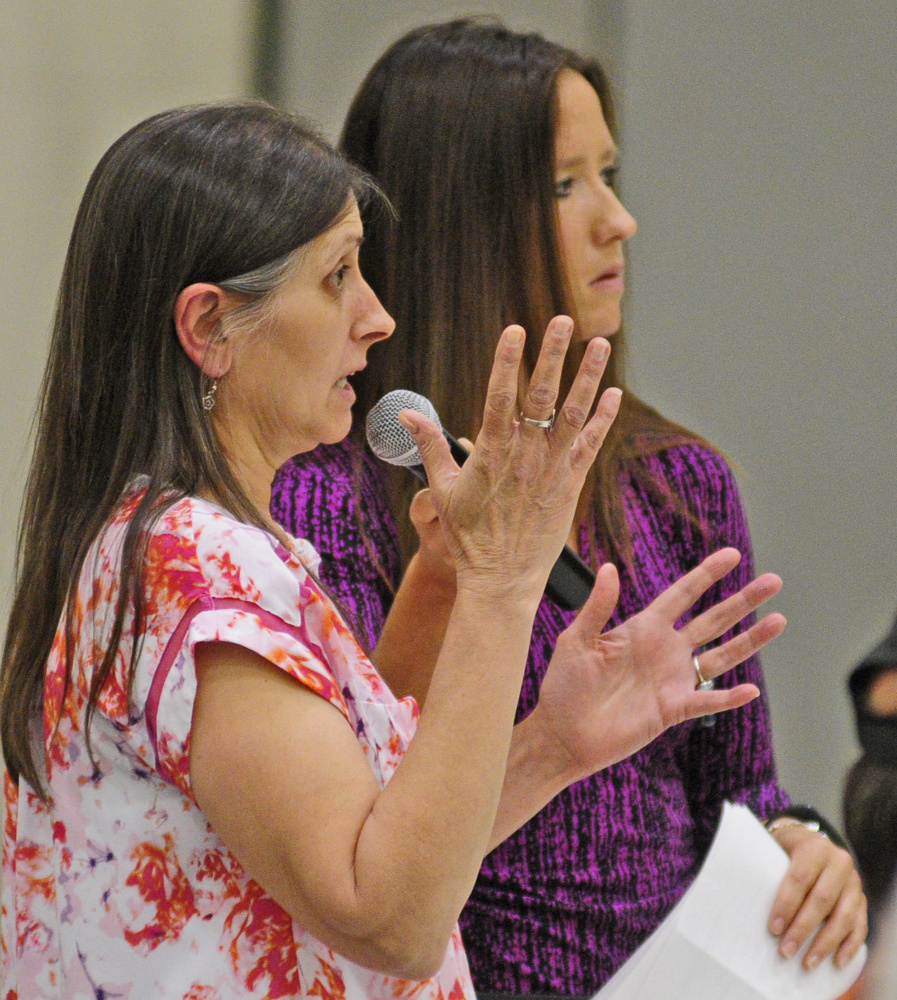AUGUSTA — Gov. Paul LePage said Wednesday that some of his plans have taken longer to execute than he would have liked, but they are gaining traction.
“Going forward,” he said, “they could be going much faster.”
The governor, in a town hall meeting at the Augusta Armory, faced a mostly friendly crowd of several dozen residents and hit on familiar points: the high cost of doing business in Maine because of energy prices and taxes that aren’t competitive with those in other states, a Legislature that must be held accountable, and a state education system that’s burdened with administrators who keep tax dollars from benefiting students and giving teachers the funding they need to run classrooms.
In the area of welfare fraud, he said, cases are starting to come to trial.
“I think Maine people have said enough’s enough,” he said. They don’t want to see welfare money spent in strip clubs or for cigarettes.
Maine welfare money has been spent in all 50 states, he said, with the most being spent in Brooklyn, the Bronx, Philadelphia, Las Vegas and Kissimmee, Florida.
“Las Vegas and Kissimmee I can see, but who would go to the Bronx?”
Earlier this week, LePage took part in a forum organized by Harvard Medical School on the region’s opioid crisis. At Wednesday’s meeting, he said he doesn’t believe that addiction recovery should be a lifetime of work.
“You need a big hammer. We have to try to make people make choices – go to rehab or go to jail,” he said.
He favors education as early as fourth grade, treatment facilities and strong law enforcement as the fix to the crisis.
Answering a question by Augusta Mayor David Rollins on the progress of his commission that’s intended to focus on how education is funded and delivered in Maine, LePage said he made the mistake of getting talked into forming it through legislation rather than executive order.
“The two sides are so polarized that this is just designed to fail from the get-go,” he said.
In the audience were two people LePage referred to as his groupies: James Roux of Freeport and a man who provided a name on a question form but declined to give it later.
Roux, who has been removed from LePage’s town halls in the past, challenged LePage on what he termed the governor’s vilification of asylum seekers.
LePage listed three kinds of refugees. The first, he said, apply in their native countries, are vetted and issued visas and allowed to come to the United States. “They come from Africa and go to Maine or Texas or Georgia, and once they get there, the federal government provides support for 18 months. It passes through the local government to them.”
The second category comprises those who initially settled elsewhere in the United States then come to Maine, he said, but because the federal support doesn’t follow them, Maine taxpayers pick up the tab.
The third are those who come on falsified documents and seek asylum once they are caught.
“They have not been vetted. We don’t know who they are. We have to pick up the tab until they are granted asylum or deported, which takes about a year and a half. And 70 percent are sent back to their native countries,” the governor said.
LePage, who had previously said the immigrants spread disease, said the Health Insurance Portability and Accountability Act prevents him from identifying the people who are spreading tuberculosis, hepatitis and HIV, but he has access to the data and said those diseases are on the rise in certain areas of the state and are being tracked by the state Department of Health and Human Services.
The governor also touched on his opposition to proposals on the November ballot, including increasing the minimum wage, ranked choice voting and background checks for gun purchases.
Copy the Story LinkSend questions/comments to the editors.





Success. Please wait for the page to reload. If the page does not reload within 5 seconds, please refresh the page.
Enter your email and password to access comments.
Hi, to comment on stories you must . This profile is in addition to your subscription and website login.
Already have a commenting profile? .
Invalid username/password.
Please check your email to confirm and complete your registration.
Only subscribers are eligible to post comments. Please subscribe or login first for digital access. Here’s why.
Use the form below to reset your password. When you've submitted your account email, we will send an email with a reset code.